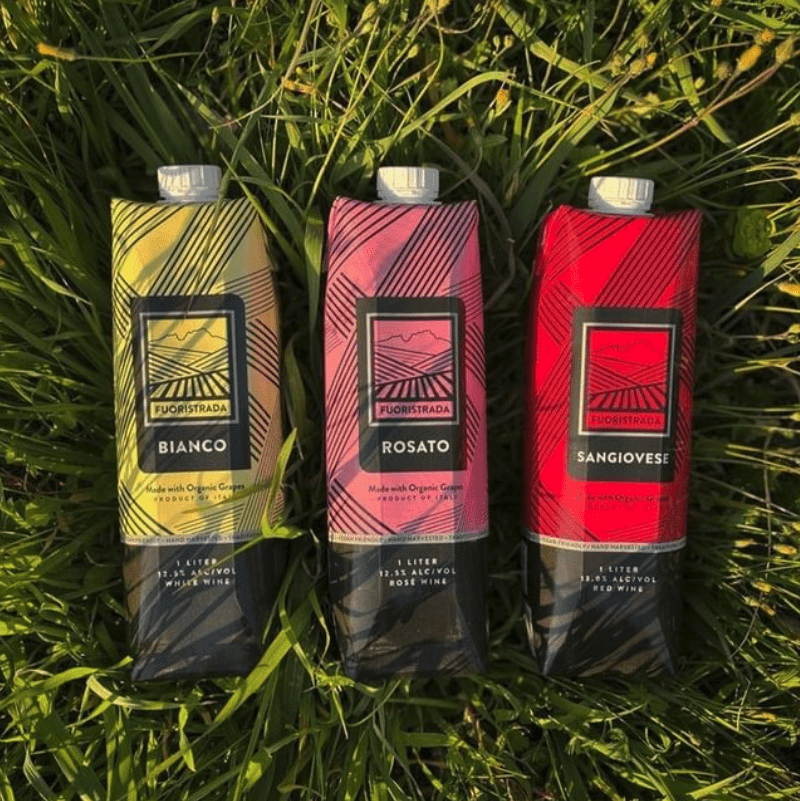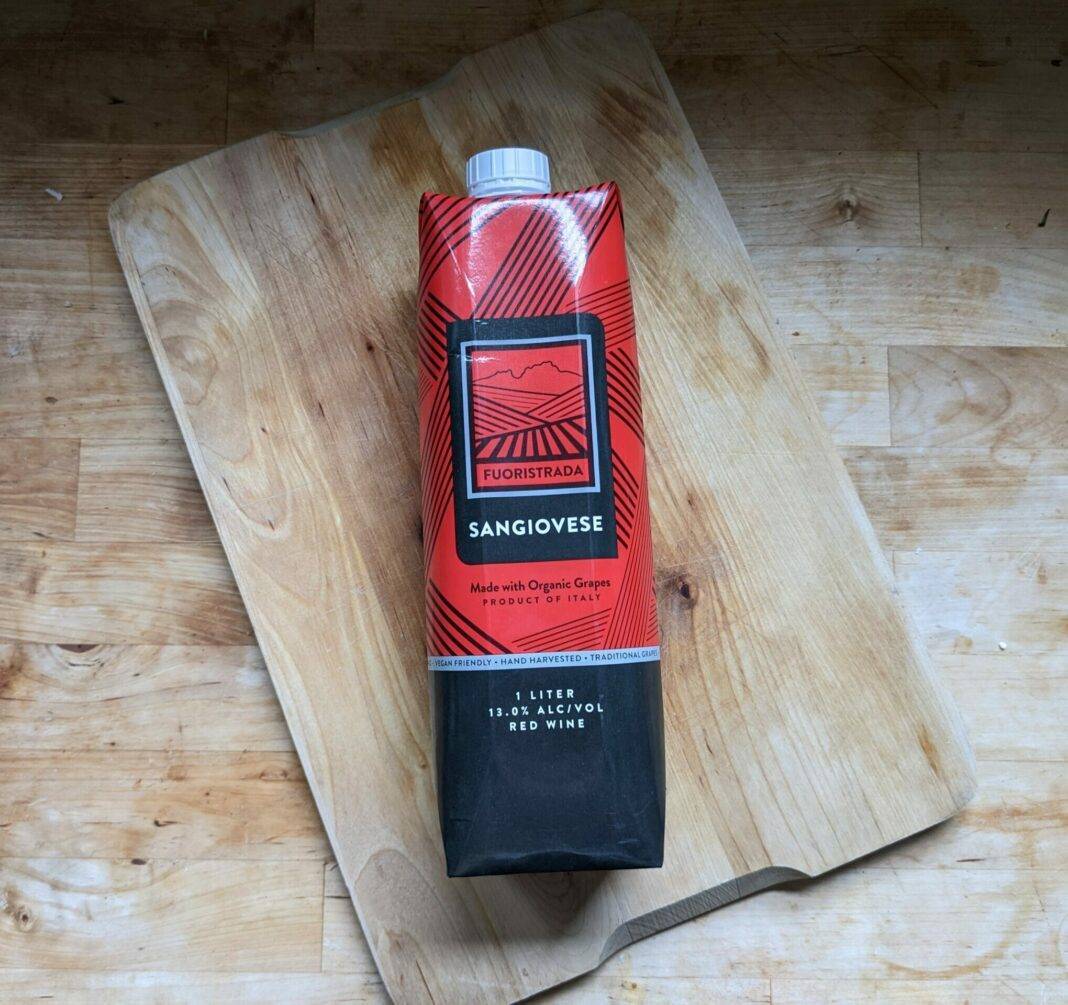Think Outside the Box with Tetra Paks
Good Libations is a regular Bluedot feature that serves up info on how to make sustainable (and delicious!) drink choices.
Thanks to the growing enthusiasm surrounding natural and organic wines, conscious consumers have started to consider the carbon footprint of their favorite bottles. Natural wine connoisseurs often opt for wines made with grapes that are hand-harvested and farmed with sustainable or biodynamic practices, but what about the environmental impact of the bottles themselves?
Wine bottles are a fascinating topic with a rich history and specialized language — certain bottle shapes being indicative of wines from specific regions or made with certain techniques. Because of the prestige associated with bottling as a part of the winemaking processes, encountering wine in a box has typically been a tell-tale sign of a low-quality product.
I recently met with David Mitchell of Mise Wines, a wine importer specializing in wines that are carefully and thoughtfully crafted with sustainability in mind. Mitchell quickly converted me on my preconceived notions about boxed wines when he introduced me to Fuoristrada’s newly redesigned Tetra Paks.
While we might not recognize the name, most of us have likely encountered Tetra Paks as packaging for non-dairy milks, water, and other beverages. These recyclable cartons were designed in 1952 by Dr. Ruben Rausing and engineer Erik Wallenberg as a safer and more sustainable solution to transporting food and beverages around the world. They developed the tetrahedron-shaped paper packaging carton that gives the Tetra Pak its name.

Compared to conventional 750ml glass wine bottles, Tetra Paks use 54% less energy, create 80% less greenhouse gasses, produce 60% less solid waste volume, and also have 92% less package weight. Because of their lightweight, space-efficient design, Tetra Paks also allow for more efficient transportation both before and after being filled with delicious wines. According to Fuoristrada’s website, “This translates into 40-50% fewer trucks to deliver the same amount of wine than traditional glass bottles.” Tetra Paks are also fully recyclable and require significantly less energy to recycle than glass bottles.
All of this is great news for the overall carbon footprint of Fuoristrada’s operation, but consumers also reap the rewards of Tetra Paks by being able to access incredible quality Italian wines at a fraction of the cost of what they can find in glass bottles. At Black Sheep Market in Cambridge, Mass, a liter of wine from Fuoristrada is only $16.50. These easily resealable packages also ensure that your wine will remain stable for much longer than it would in a conventional glass bottle.
Fuoristrada is setting a great example for how the wine industry can move forward in developing sustainable practices at all steps in the winemaking process. Their grapes are grown organically and biodynamically, fermented with minimal intervention, and sent off to the consumer in environmentally conscious packaging. Even more, 1% of all their wine sales are donated to 1% for the Planet, an organization that gives to thousands of under-funded non-profits that are dedicated to sustainability, preservation, and restoration.
And, most importantly, the wine is delicious! Don’t judge a wine by its packaging — boxed wine isn’t just for keeping something cheap shoved in the back of your fridge for “emergencies” anymore. Now, you can enjoy glass after glass without any moral hangover since you know your wine was ambitiously crafted with climate impact in mind.
Julia Cooper’s Good Libation: While I am a huge fan of all of their wines, my personal pick for the current season is Fuoristrada’s Sangiovese. Sangiovese is the grape traditionally grown in Italy’s Chianti region. This Sangiovese cannot be labeled as Chianti because Federdoc, the Voluntary Consortia National Confederation for the Protection of the Italian Wines Designations, dictates that in order for a wine to receive the designation of Chianti it must be packaged in glass and sealed with a cork.
In the glass, aromas of dark plums and garden-fresh tomatoes underscore a palate of dried thyme and pipe tobacco with zippy tannins on the finish. Fuoristrada’s Sangiovese is perfect for pizza night or alongside some warm, roasted fall vegetables.
Cin-cin!


